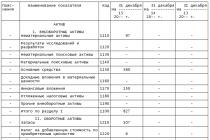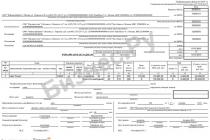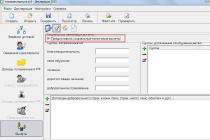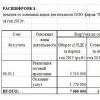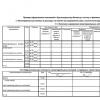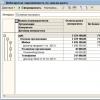The OKTMO code is a special digital designation that is assigned to each municipality in Russia. The OKTMO code in the payment order of 2017 is put down in accordance with the order of the Ministry of Finance No. 107n of 2013, which defines the basic rules for filling out payment orders. According to his instructions, all fields and lines of the payment must be filled in accordingly. If any obligatory requisite is not indicated in the document, the bank will not accept such an order for execution. Therefore, the territory code in the form of OKTMO should always be indicated in the payment order.
What is it needed for
The digital designation of the territory in which the taxpayer operates and receives income was introduced for:
- fast identification of the received payment;
- attributing it to the budget of the corresponding municipality, subject of the Russian Federation.
Where to find
To understand which OKTMO code to indicate in a payment order, you need to know that all the values of the codes in question are listed in the All-Russian Classifier of Territories of Municipalities - OKTMO for short, which was approved on June 14, 2013 by order of Rosstandart No. 159-st. This handbook was adopted to replace OKATO - the classifier of administrative-territorial division. Thus, the question itself disappears - what to indicate - the OKATO or OKTMO code in the payment order.
Please note that since the beginning of 2014, in tax returns and in payments, field 105 has been filled in with a value in accordance with the OKTMO classifier. It represents the code of the municipality in whose territory the organization operates or the payment is made.
If the organization has separate divisions, which OKTMO should be indicated in payment orders when deducting contributions and taxes? In payments and declarations indicate the OKTMO code of the area where the "isolation" is located.

There is a feature whose OKTMO is indicated in the payment order in relation to payments at customs. It is necessary to take the code of the territory that accumulates the corresponding payment.
What to do if it is incorrect
If the OKTMO code in the payment order is incorrect, this will not affect the receipt of tax to the budget. When an error is found in this attribute, in accordance with paragraph 7 of Art. 45 of the Tax Code of the Russian Federation, an organization should contact the Federal Tax Service with an application for clarification of the details. Such a request is written in free form. In this case, the document must indicate:
- date of payment, transferred amount, purpose of payment;
- props that are specified incorrectly;
- the correct value of this attribute.
Along with the application, you must submit:
- A copy of the erroneously completed payment.
- Statement of the transfer of the amount.
In the event of an error in OKTMO in the payment order, the tax inspectorate may offer the organization to reconcile the calculations. The decision of the IFTS must be made no later than 10 working days from the date of receipt of the application from the organization, taking into account the execution of the act of reconciliation of settlements. The tax authority is obliged to notify the payer of its decision.
If the OKTMO code is erroneously entered in the payment order when paying insurance premiums in 2017, no clarification of the payment is required, since the Treasury does not take its value into account when distributing insurance premiums between budgets. This payment does not fall into the unexplained, but will be taken into account in a special settlement card with the budget, which indicates the OKTMO code for the organization's place of business.
Occasionally, OKTMO in the payment to the FIU may have a zero value. This issue is regulated by clause 4 of Appendix No. 4 of the order of the Ministry of Finance of November 12, 2013 No. 107n.
If you find an error, please highlight a piece of text and click Ctrl+Enter.



